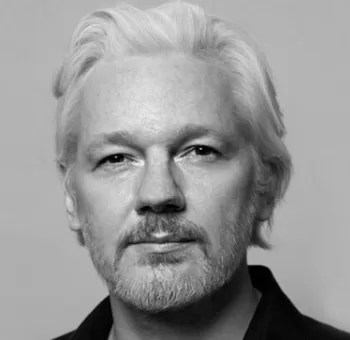Julian Assange will give evidence before the Committee on Legal Affairs and Human Rights of the Parliamentary Assembly of the Council of Europe (PACE) in Strasbourg on 1 October 2024 at the Palace of Europe.
In a significant move, the Legal Affairs Committee of the Parliamentary Assembly of the Council of Europe (PACE) expressed deep concern over the harsh treatment of Julian Assange, warning of its broader implications for press freedom.
Assange, who had been released after years of detention, was subjected to what the committee called “disproportionately harsh” treatment, sparking fears that his case could set a dangerous precedent for journalists worldwide.
Central to the committee’s concerns is the U.S. government’s handling of Assange’s case, particularly under the Espionage Act. The committee, led by Icelandic lawmaker Thórhildur Sunna Ævarsdóttir, argued that the United States had failed to prosecute the individuals responsible for the war crimes and human rights violations revealed by Assange and WikiLeaks.

Instead, Assange himself bore the brunt of legal retaliation, creating a perception that the U.S. government was more interested in concealing its misconduct than in safeguarding national security.
The committee’s draft resolution echoed this sentiment, pointing out that while WikiLeaks’ disclosures—particularly unredacted ones—could have endangered informers and intelligence personnel, no evidence has ever emerged to suggest that anyone was harmed by the leaks.
This fact, according to the committee, further calls into question the U.S.’s rationale for prosecuting Assange so vigorously.
A Chilling Message for Journalists Everywhere
The disproportionate severity of the charges against Assange, coupled with the hefty penalties he faced under the Espionage Act, raised alarm bells. The committee referenced a 2012 PACE resolution defining political prisoners, suggesting that Assange’s treatment fell within this category.
The charges and possible penalties were seen as far too harsh for what essentially amounted to acts of journalism—an assertion that journalists, publishers, and human rights advocates have long maintained.
The committee’s report did not shy away from criticizing the UK’s role in Assange’s prolonged detention. While Assange’s legal battle against extradition dragged on, the UK failed to adequately protect his freedom of expression and right to liberty. His extended confinement in a high-security prison was deemed excessive and unjust, given the political motivations behind the most serious charges.
Perhaps the most damning aspect of the report was its warning about the wider implications of Assange’s case. The unprecedented conviction of a journalist under the Espionage Act has created what the committee described as a “chilling effect.”
This sends a dangerous message to journalists, whistleblowers, and publishers around the globe, fostering a climate of fear and self-censorship that threatens the very foundation of a free press.
The report urged the United States, as an observer state of the Council of Europe, to take immediate action. Reforming the 1917 Espionage Act to exclude its application to journalists and whistleblowers who publish classified information in the public interest was cited as a critical step to safeguard freedom of the press.
This debate is set to take center stage at the Council’s full assembly during the autumn plenary session in Strasbourg on October 2, marking a pivotal moment in the global conversation about the future of press freedom. Assange’s ordeal, and the international response it has provoked, serves as a stark reminder of the delicate balance between national security and the public’s right to know.
The outcome of this debate may well shape the future landscape for journalists, whistleblowers, and publishers who dare to challenge the status quo.
Our stories on the Assange saga




